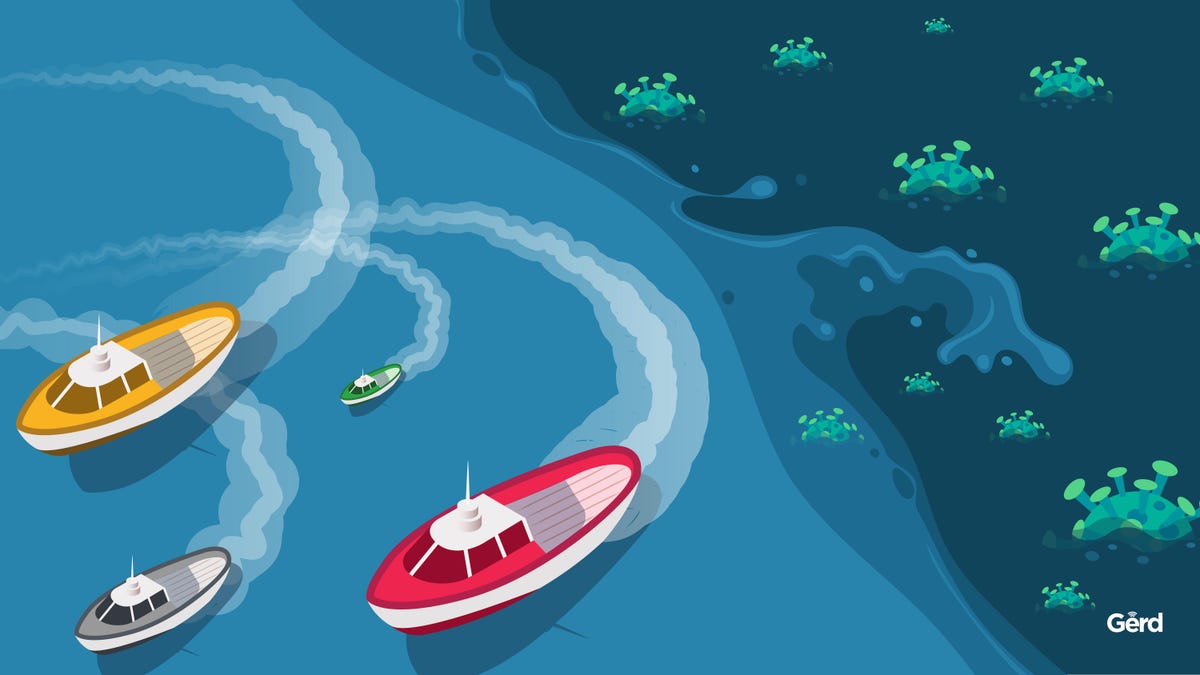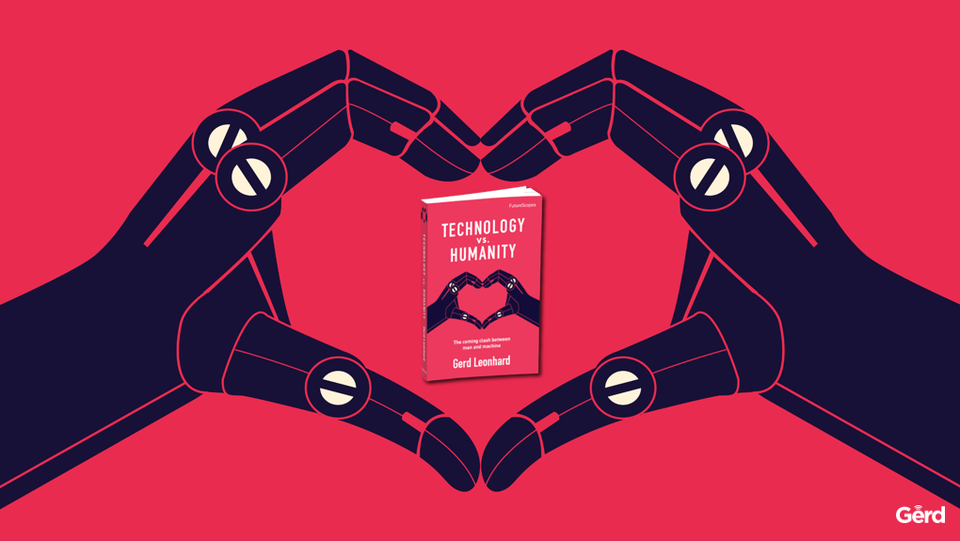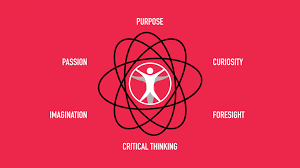Your job is to predict the future. But the unexpected COVID-19 pandemic has changed our lives dramatically.
So is there any point in making predictions in such an unpredictable world?
From September 9 to 11, Moscow hosted the Forum of Social Innovations, one of its speakers was Gerd Leonhard, a European futurologist specializing in the impact of technology on human society. Leonhard is the founder of The Futures Agency and the author of five books, including The Future of Music and Technology vs. humanity”. He was named one of the 100 most influential people in Europe by Wired.
– First, we cannot say that the pandemic was unpredictable. Many people predicted her – Larry Brilliant, for example. It was clear that the likelihood of its occurrence was increasing. Therefore, I always say that the future is the result of our choice. We chose not to prepare for a pandemic. Now we are paying the price and from our own experience we understand that being prepared is really important. So now we are preparing for climate change and the widespread use of artificial intelligence. Because they learned some hard lessons from the pandemic.
Second, my job is not to “predict the future.” It’s almost impossible. I think some people, like Isaac Asimov, Alvin Toffler or Buckminster Fuller, were really good at predicting. But that was at least 50 years ago, when the future was really distant. Now it is already here. You can see pieces of it wherever your gaze falls. So my job is not to predict, but to observe what is likely to happen and share my intuitions.

Jeff Bezos calls this “hunches”. For me, the best word is foresight. Foresight means understanding what is most likely to happen when many factors are intertwined with each other. I spend 90% of my time getting a little ahead of governments and corporations. So I can afford the luxury of looking at things that they think are irrelevant, yet unworthy of attention. 95% of my clients spend 100% of their time in the present. And thus they make a big mistake, because the present is fleeting, and the future comes inexorably.
– Due to the pandemic, it has become much more difficult to travel. Meanwhile, the world in the past 10 years has become more and more politically fragmented. Does this mean the end of the era of globalization?
– What we see in the field of international cooperation is a temporary rollback. Many countries want to recover first. They want to make sure they’ve dealt with the pandemic, save resources for themselves, rebuild their supply chains and other such things. But it is clear that the only way that can give us all hope of a return to normal life is through a global vaccination. And for this you need to cooperate and, by the way, break the rules of capitalism. Because we (rich countries) will have to pay for others (poorer) to vaccinate their population.
No country, even the most powerful, can solve these problems alone
The story is the same with other global challenges: climate change, the development of artificial intelligence (AI), genetic engineering technologies, and so on. No country, even the most powerful, can solve these problems alone. Either we can handle them together, or we’re wasting our time. So the only way forward for the human race is cooperation.
As Buckminster Fuller (American architect and inventor of the 20th century – Forbes Life) said, we have all the technologies we need, but we are not using them for that. Instead of using AI to fight disease and to develop agriculture, we are building weapons from it. And this is a big problem, especially in the political field. We must understand that if we do not cooperate on really important issues, we risk simply disappearing from the face of the Earth as a species.
– You said that we would have to break the rules of capitalism. Why? And what will replace them then?
– Traditional capitalism as we know it in the West is absolutely inappropriate for the future. It does not solve many important problems. Instead, it aggravates them instead. It is safe to say that capitalism has already failed many important “exams”: allowed climate change, prevented the effective deployment of global vaccination, and so on. And now we are paying for all this. So we need what Al Gore 15 years ago called “sustainable” capitalism. Some kind of reorientation towards a broader set of values. Until now, capitalism has focused mainly on the values of profit and growth: more jobs, more money, higher GDP.
I think that soon all discussions on the topic “capitalism vs socialism” will be left behind, because they will no longer be relevant. Neither capitalism nor socialism in their traditional forms will lead us to what I call a “good future.” We must focus on a new approach that is collective. And ultimately, perhaps in 20-30 years we will have a world government in many aspects.
– In the novels of the Strugatsky brothers, the future global government consists mainly of doctors and teachers. Alas, now in Russia these professions are not well paid. Is it possible to say that solving this problem holds the key to a “good future” for our country?
In my film The Good Future, which was released a little over a month ago, one of the main thoughts is this: we pay b o most of the money to people who do the wrong things things. The reason is that today the biggest force in the world is business, industry. And that’s not necessarily a bad thing when looking at economic performance. But will a good industry create a good future? The answer is negative. She will create the most profitable future. And a good future is being realized not because it will bring maximum money. Quite the opposite.

Facebook is a great example of a feudal platform economy that is eating away at society
We must turn the situation around and say: let’s pay the people who solve the most difficult and important problems of humanity, the same as the CEOs of the companies receive now. So that they can go about their business and not depend on anyone. How Socrates or Aristotle was paid by society. We really have to pay doctors and teachers, writers and public intellectuals in general to have these wise people help us understand what is worth doing and what is not.
– What about unconditional basic income? Is this a good idea?
– From the point of view of traditional capitalism, this is a bad idea. After all, in it the means of production are getting cheaper, profits are growing, but money is not distributed. The same Facebook, for example, receives over $ 50 million in profits every day. But where does this money go? They pass through the six largest cities in the United States, which are leading the digital economy. And they end up in the pockets of shareholders and company leaders, but not in the masses of the population. Facebook is a great example of a feudal platform economy that is eating away at society but loved by the stock markets.
We must think about new ways of distributing profits, including the need to revise the system of economic incentives. If, as the head of a corporation, you are not interested in striving for the common good, then you most likely will not do this, because this does not help your goal of making a profit in any way. Therefore, we are now moving towards what is called “stakeholder capitalism”, in which the interests of all parties are taken into account and companies are socially responsible.
The real question about unconditional income is: are we willing to share money?
Many people understand the idea of an unconditional basic income in a simplified way, as if everyone would live happily ever after without working. But that’s not the point at all. Rather, it is about a guaranteed minimum that will allow everyone to survive. My favorite is the negative income tax model. We saw something similar in many countries during the covid crisis, when the state helped people to prevent them from falling into poverty. And it turned out that there is money for this. So the real question about unconditional income is: are we willing to share the money?
We will soon see new corporate tax logic around the world. The G20 countries have agreed on a common minimum corporate tax rate of 15%. That way, we can raise so much money (along with new carbon taxes) that, in theory, enough to pay people for social work, or to fight global warming, or whatever work has been done so far. on a volunteer basis. And again, this is not about socialism. It’s just a new logic that says: it’s better when people are involved in the economy. Because it creates progress and new opportunities. And gross inequality and economic injustice are key drivers behind crime and terrorism.
– Are cryptocurrencies a bubble or currencies of the future?
– I think blockchain and distributed databases are really our future, the next internet. But money (the official fiat currencies) is unlikely to ever develop without real government control. This is very difficult to imagine. I think we will have digital currencies created by central banks. I know Russia is actively thinking about this, just like India and many other countries. It definitely makes sense to have such a currency.
Besides, I think within 10 years there will be a global digital currency that can replace the dollar as a global currency. But it will not be based on a decentralized and encrypted peer-to-peer token exchange. This can work with many other things, but not with fiat currencies. They will remain under the control of official structures. I guess in the case of the global digital currency it will be the World Bank.
– What is the future of healthcare and biotech?
– Now, when we talk about healthcare, pharmaceuticals, and so on, we mean trying to fix something that’s already broken – caring for sick people. And this is a very outdated approach. Because more often than not, when something has already broken in the body, it is already difficult to fix – and very expensive. In fact, this is not healthcare, but sick-care. But now we are moving into the future of medicine, where we will predict and prevent diseases, change their course using big data analytics and, possibly, advances in genomics, as well as a fundamentally different lifestyle, nutritional supplements and much more. It will be a holistic, intelligent and integrative approach.
The largest pharmaceutical companies are becoming technology companies. This means that we will need a reliable mechanism for sharing sensitive personal data, which, of course, we do not have. You, of course, do not want to give information about your genome to Facebook, VKontakte or any other similar service. This is an important issue that must be addressed before we can make real progress in digital health. But if we can combine technology and biology, it is quite possible that in the next 20-30 years we will defeat many serious diseases. We will be able to live much longer, so that the normal life expectancy will well exceed 100 years.
– Could this lead to a global biological inequality? Already now we actually have a vaccine inequality.
– The prospect of inequality is the biggest challenge here. You’re right, vaccine inequalities have already emerged, and that’s a shame. It is appalling that we cannot efficiently distribute what is obviously supposed to be a common property.
I think of it this way: everyone should have access to vaccines, because in the end we all benefit if everyone is vaccinated. And certain means of prolonging life, such as genetic analysis, should also be available to everyone – as long as they do not go beyond the human, that is, they do not partly turn us into machines. You know, some people want to become superhumans, live indefinitely and make more money. But only a few will be able to afford this, and all the rest will be deprived of it. This is perhaps the worst possible future for us.
– How can we avoid it?
– Establishing new global health rules – for example, for vaccinations, cancer treatment or diabetes – that will be based on data and reason. For such technologies to become generally available. And we will need global treaties on genetic engineering, similar to the nuclear nonproliferation treaties.
We prepare our children and future leaders for what will never happen
– What will the future of education be like? How can we prepare for it now?
– Education today is hopelessly behind the realities of the surrounding world. This is true for most countries, but for Russia – especially, I think. In fact, we are preparing our children and future leaders for what will definitely not happen. To compete with machines trying to “load” more information into themselves, which can be easily obtained at any time. Education should become relevant, strategic (not situational), lifelong, hybrid (including digital elements) and accessible to all.
Over the next 10 years, computers will clearly learn how to perform all the mundane tasks, including simple interaction with people in areas such as finance or healthcare.
So the future of education is focused on what only humans can do. What are these tasks? Here we can refer to the Moravec paradox, named after the Hungarian scientist who formulated it. In a very simplified way, it sounds like this: “What is easy for people to do, it is difficult for machines to do, and vice versa.” For example, for most of us it is not a problem to “read” another person in a matter of seconds, after talking with him, to understand some basic things about him. But for a machine, this is an extremely difficult task. In contrast, we can read between the lines and use our intuition.
A ticket to the future that will allow us to be in demand as a professional – these are the things that make us human
The ticket to the future that will allow you to be in demand as a professional is the things that make us human, that is, humanitarian skills: art, design, ethics, values, understanding. Already today, we see that large companies, when hiring new managers, pay great attention to their emotional intelligence. Academic degrees and achievements are still important, but now it’s not just intelligence and logic that matters: emotions are powerful too.
– Ray Bradbury wrote that humanity preferred consumption to space exploration. But now it looks like the space race is resuming – with visionaries like Musk and Bezos, as well as big countries like China. Will we see the long-awaited human breakthrough into space?
– In my opinion, it is clear that we must go to other planets and populate not only the Earth. This could potentially be our backup plan if global warming cannot be tackled otherwise. And we will probably send AI robots forward to conduct space exploration.
Some of this may happen in the next 20-30 years, but basically this is not a near-term perspective. I agree with Paul Seffo, my fellow futurist, that confusing near and far perspectives is a big mistake. In the short term, is it probably better to spend trillions of dollars not on space, but on rebuilding our own planet? Although one does not exclude the other, and perhaps we can work in both directions.
– So do you think our future will be good?
– I often say that the future is better than we think, but with one big “if”: if we make the right decisions. If we learn to collaborate and create the right foresights. Interestingly, people seem to be able to cooperate only when real trouble comes. We worked out a compromise after the bombing of Hiroshima and Nagasaki, because the threat has become transcendent. The countries have now begun to cooperate in the fight against covid after the pandemic broke out. And I’m afraid that if we don’t learn to cooperate before we face big problems, we may not have to cooperate anymore – because it will be too late, and we will only have to choose the least painful path to disaster.
But I am rather an optimist and I believe that we will be able to find solutions to global problems, approximately within the next decade. I always say that the next ten years will bring more changes than the previous hundred.
